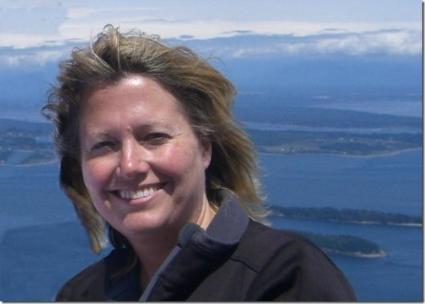– Submitted by DVSAS
This is the third of four articles submitted by DVSAS for Sexual Assault Awareness Month.
When we hear stories of children being harmed by strangers in the news, we quickly empathize with the victims and their families. But when violence takes the form of child abuse in our own circles, many of us keep our distance.
“It’s not because people don’t care,” says Kim Bryan, Prevention Coordinator of San Juan County’s Domestic Violence and Sexual Assault Services. “Good people want to help. But they don’t know how, and they don’t want to make things worse.”
To mobilize others, Bryan tells the story of a car crash her family encountered recently on a trip to Spokane.
“We were first on the scene that night and could see that the driver was badly hurt. I’m a nurse, so I was ready to give first aid, but my husband can’t stand the sight of blood, and my daughter was freaked out and screaming that she couldn’t get out of the car,” said Bryan.
Yet all three of them took action. The husband directed traffic around and away from the scene – he didn’t have to look at the victim. Bryan’s daughter pulled out her cell phone and called 911 from inside their car. Bryan tended to the victim.
“Each one of us did a part of what needed to be done to save the driver’s life,” she said.
In the case of child abuse, Bryan said “it’s just as important to do something right away. Don’t hesitate to ask a few simple questions: Is everything okay? Is someone hurting you? You could be the first adult to give that kid hope.”
Bryan recommends that you then call the DVSAS Crisis Line.
“We can walk you through what needs to be done. This isn’t something you need to handle by yourself,” she said.
In cases where a friend discloses past child abuse, one of the best things you can say is simply “I’m sorry you were hurt.” Listen to your friend without judgment or pressure. Offer to help him or her take the next step, when and if they are ready. And it’s okay to call DVSAS for advice on how to support your friend.
DVSAS 24-HOUR CRISIS LINE: Lopez-468-4567, Orcas-376-1234, San Juan-378-2345



